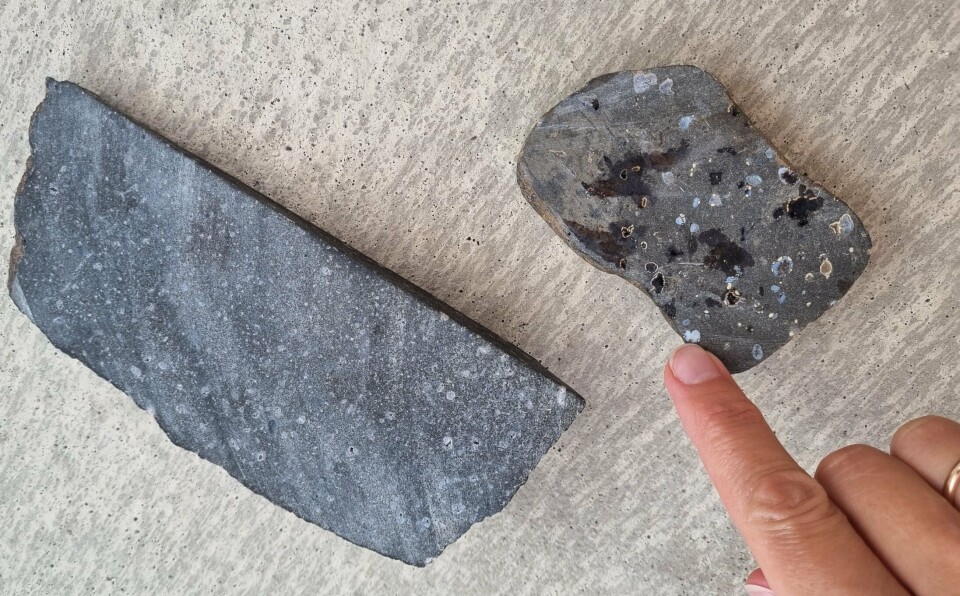
Cannabis can kill cancer cells and curb MS
We are generally advised against self-medicating with cannabis. However, research shows that cannabis can actually relieve pains and nausea, fight cramps and even kill cancer cells.
People with chronic pain, tremors and spastic movements, along with cancer patients who suffer constant nausea as a result of chemotherapy, may have good reasons for breaking the law and light up the occasional joint.
Cannabis has been proven to have a beneficial effect on pain, nausea and neurological disorders. The active substances of the cannabis plant can even kill cancer cells, research shows.
”There is scientific evidence that cannabis has a calming, appetite-stimulating and even an analgesic effect,” says Harald S. Hansen, a professor at the Department of Drug Design and Pharmacology at the University of Copenhagen, Denmark.
Pharma industry shuns cannabis
Cannabis has more than 60 so-called cannabinoids – chemicals that affect receptors in the brain when they enter the bloodstream.
The pain medications currently available do not work well enough. A vast majority of chronic pain patients do not receive adequate pain relief – there is a desperate need for new drugs, so people are trying out all sorts of alternatives. Many chronic pain patients, especially abroad, smoke cannabis to relieve their pain.
As early as in 2005, Professor Hansen and colleagues published a study (in Danish only), which concluded that medical cannabis has numerous benefits. The cannabinoids were found to have beneficial effects on a long series of animal models of diseases such as multiple sclerosis (MS), cancer, epilepsy, diabetes, Parkinson’s disease, Alzheimer’s disease and gastrointestinal diseases.
Despite this, research into the beneficial effects of cannabis rarely makes it beyond the university labs or, at best, into scientific journals, because the pharmaceutical industry is not very keen to use the infamous plant in its drugs, says Hansen.
”When substances have a euphoriant effect it is difficult to get them approved for medicinal use, so they would rather not work with these substances.”
Daily dose can slow down sclerosis progression
A low and controlled daily dose of cannabis over a prolonged period appears, to a certain extent, to slow down the progression of sclerosis, according to a 2011 rat study by Henrik Hasseldam of the Biotech Research and Innovation Centre (BRIC) at the University of Copenhagen.
Some pharmaceutical companies have tried to produce the cannabinoids synthetically, but unfortunately it has proved difficult to make these sufficiently effective on the pain system without unwanted side effects.
“Overall, the experiments showed that cannabinoids have beneficial effects against MS, since they put a damper on the immune system, which is over-activated in the patients. However, most of the MS patients who self-medicate with cannabis do it because it relieves their pain,” says Hasseldam.
Cannabinoids reduce twitching and muscle stiffness
The cannabis plant can also have beneficial effects on other aspects of MS. A recent German study has shown that the cannabinoid medicine Sativex reduces twitching and muscle stiffness in MS patients.
In the study, known as MOVE 2, the researchers followed 300 patients who took the Sativex drug. After a month the patients’ severe spasticity, which is one of the symptoms of MS, was reduced by at least 30 percent.
”This drug has the unfortunate side effect that patients become very drowsy. If you are struggling to hold a job, things do not get any easier if you are in intensive cannabis treatment. That’s one of the reasons why doctors are very careful in prescribing Sativex,” says Hasseldam.
Researchers are currently trying to develop cannabis preparations that only attack the receptors in the peripheral nervous system in an effort to achieve the pain-relieving effect without the side effects that come from affecting the central nervous system.
”But an MS patient may well prefer to be drowsy and unfocused as a result of taking cannabis if the alternative is twitching, spastic movements and severe pain every day. Other MS drugs on the market can also make patients drowsy and have many other unfortunate side effects. That’s why there is a lot of intensive research going into the development of new drugs.”
Cannabis is a popular painkiller
Lars Arendt-Nielsen, a professor at the Department of Health Science and Technology at Aalborg University, is one of Denmark’s leading pain management researchers. He has also heard of patients who self-medicate with cannabis as a last resort:
“The pain medications currently available do not work well enough. A vast majority of chronic pain patients do not receive adequate pain relief – there is a desperate need for new drugs, so people are trying out all sorts of alternatives. Many chronic pain patients, especially abroad, smoke cannabis to relieve their pain.”
This is understandable, he says, because when we smoke cannabis the cannabinoids bind to receptors in the peripheral and central nervous system that are related to pain.
The cannabinoids in cannabis prevent cancer cells from spreading, and they contribute to cancer cell death because they hit some receptors that are generally up-regulated in cancer cells.
”Some pharmaceutical companies have tried to produce the cannabinoids synthetically, but unfortunately it has proved difficult to make these sufficiently effective on the pain system without unwanted side effects.”
The side effects from synthetic cannabis are the same as with natural cannabis: you get stoned, tired, unfocused, forgetful, and prolonged use can lead to depression and other mental disorders. This makes it difficult to gain medical approval for these drugs.
”For this reason researchers are currently trying to develop cannabis preparations that only attack the receptors in the peripheral nervous system in an effort to achieve the pain-relieving effect without the side effects that come from affecting the central nervous system,” says Arendt-Nielsen.
Cannabis can kill cancer cells
In addition to being an effective pain reliever, cannabis has also been shown to reduce twitching and tremors caused by diseases such as MS, epilepsy and Parkinon’s.
But that’s not all: cannabis also curbs nausea, according to research by the Danish Cancer Society, which has found that some cancer patients in chemotherapy therefore use cannabis to regain their appetite.
There is evidence that the controversial plant can do more than just provide symptom relief for cancer patients: cannabis can even kill cancer cells:
”The cannabinoids in cannabis prevent cancer cells from spreading, and they contribute to cancer cell death because they hit some receptors that are generally up-regulated in cancer cells,” says Professor Marja Jäättelä, who heads the Cell Death and Metabolism Research Unit at the Danish Cancer Society.
“This has been demonstrated in several studies. There is no doubt that cannabinoids are very effective at killing cancer cells.”
Cannabinoids also kill immune cells
The problem is that it is technically difficult to work with cannabinoids in cancer research. One of the obstacles is that researchers need to use a different culture from what they are used to when growing cells for the experiments. So even though researchers, Spanish researchers in particular, have had promising results in cannabinoid experiments, the Danish Cancer Society has yet to test the substances.
“Another problem is that the cannabinoids also kill the immune cells, and that’s not a good thing in relation to cancer. We need to find a selective method that only targets the cancer cells and not the immune system, says Jäättelä.
“In general, however, I think it’s a good idea to research further into cannabinoids as this is definitely an area with potential.”
----------------------
Read the Danish version of this article at videnskab.dk
Scientific links
- Journal of Clinical Investigation, 2009; Cannabinoid action induces autophagy-mediated cell death through stimulation of ER stress in human glioma cells. Doi: 10.1172/JCI37948
- International Journal of Neuroscience, 2011; Cannabinoid Treatment Renders Neurons Less Vulnerable Than Oligodendrocytes in Experimental Autoimmune Encephalomyelitis. Doi: 10.3109/00207454.2011.582237
External links
- Harald S. Hansen’s profile
- Henrik Hasseldam’s profile
- Lars Arendt-Nielsen's profile
- Marja Jäättelä’s profile








